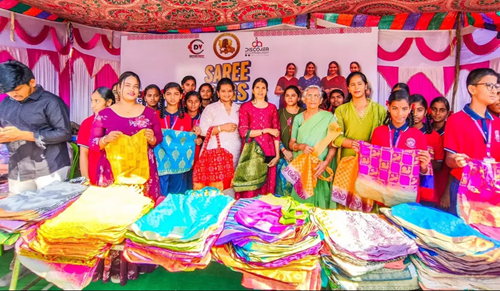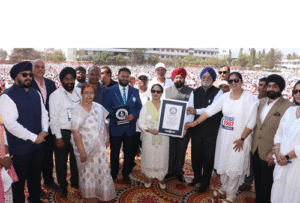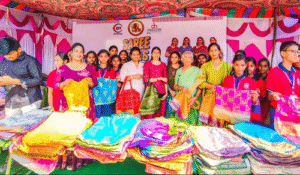In a powerful demonstration of women’s empowerment, environmental consciousness, and collective effort, a team of women tailors in Anantapur has secured a world record by stitching and distributing over 10,000 reusable bags made from discarded saris in a single day.
The remarkable feat was the centerpiece of a dedicated anti-plastic campaign organized by the local grassroots organization, Discover Anantapur, on Sunday.
The initiative aimed to create a tangible, sustainable alternative to single-use plastic bags while simultaneously providing economic support to local women tailors.
The Goal: The campaign initially set a high target to stitch and distribute 9,000 bags within a tight 10-hour window.
The Achievement: The dedicated women tailors, working from old, donated saris, surpassed this goal, ultimately producing and distributing 10,000 cloth bags in the allotted 10 hours.
Recognition: The achievement has been recognized by multiple record-keeping authorities for the largest distribution of eco-friendly carry-bags stitched within a short period, setting a new benchmark for community-led environmental action.
The massive distribution drive, supported by volunteers and the Daggubati Foundation, focused on high-traffic areas across the city, including local markets and fruit merchant stalls, to maximize the impact of the anti-plastic awareness message.
The “Sari to Shopping Bag” movement is more than just a world record; it’s a sustainable model that offers two crucial benefits:
Women’s Livelihoods: The women tailors involved in the campaign were paid wages for their stitching work, securing a dignified and steady income stream from the initiative.
Environmental Impact: By recycling old saris and promoting reusable cloth bags, the project directly addresses the pressing issue of plastic pollution in the region.
Discover Anantapur founder, AG Anil Kumar, confirmed that the initiative will continue to expand in Anantapur and aims to replicate the model in other parts of Andhra Pradesh, ensuring the momentum against plastic use is sustained.







